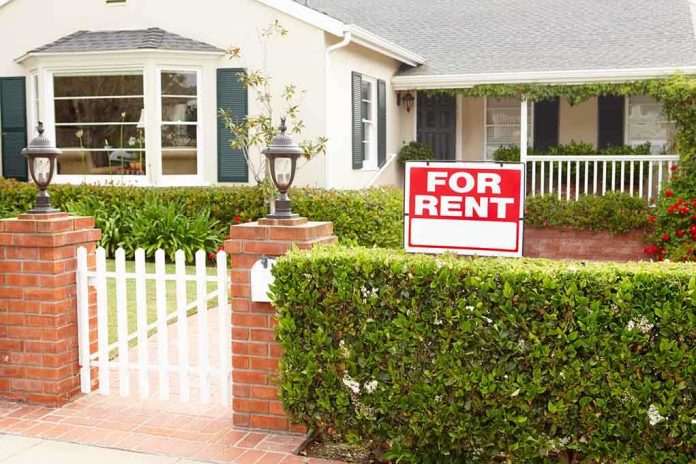
A rent freeze proposal threatens NYC’s small landlords, raising fears of financial instability and unsellable properties.
Story Highlights
- Zohran Mamdani’s rent freeze proposal sparks anxiety among small landlords.
- Concerns over financial stability and property maintenance grow.
- Incumbent Mayor Eric Adams opposes the freeze, supporting small property owners.
- Political stakes high as rent regulation becomes central mayoral race issue.
Impact of the Rent Freeze Proposal
Zohran Mamdani’s proposal to freeze rents on stabilized apartments in New York City has intensified the political discourse, with significant implications for small landlords. These property owners express deep concerns over the potential financial strain and inability to maintain their properties. The proposal, a cornerstone of Mamdani’s campaign, is positioned as a solution to NYC’s affordability crisis but threatens the livelihoods of many mom-and-pop landlords.
Mayor Eric Adams, running as an independent, has taken a firm stance against the rent freeze. He argues that such a policy could lead to deteriorating housing conditions and financial ruin for small landlords, many of whom are from minority communities. Adams continues to advocate for modest rent increases while cautioning against measures that could destabilize the housing market, thus supporting the interests of these small property owners.
Political and Economic Stakes
With over a million rent-stabilized apartments in NYC, the proposed freeze could significantly impact the housing market. Renters, who make up a considerable portion of the city’s population, would benefit from halted rent increases, providing immediate relief amid the affordability crisis. However, the financial burden could force small landlords to defer essential property maintenance, risking the quality of housing stock across the city.
The Rent Guidelines Board (RGB), which sets annual rent increases, plays a critical role in this debate. Appointed by the mayor, the RGB faces pressure from both tenant advocacy groups and landlord associations. The final vote on rent increases, scheduled for June 30, 2025, will be a decisive moment in this ongoing conflict, shaping the future of rent regulation in the city.
Broader Implications and Reactions
The rent freeze debate highlights the complex dynamics between tenant advocacy groups and small landlords. Advocates for the freeze argue it is essential for preventing evictions and ensuring housing stability. In contrast, critics warn of the long-term consequences, such as reduced property maintenance and the potential exodus of small landlords from the market, leading to increased consolidation by larger real estate firms.
IF Mamdani WINS, NYC WILL be Lost
Wake Up NYC‼️Mom-and-pop NYC landlords fear getting stuck with unsellable properties if Mamdani wins: ‘The kiss of death’ https://t.co/gTIl8zXdZX
— 🇺🇸The REAL Lady De’Plorable🇺🇸 (@LadyRedWave) August 28, 2025
As the mayoral race unfolds, the outcome will have lasting repercussions on NYC’s housing policies and economic landscape. The rent freeze proposal not only tests the city’s political will but also challenges its ability to balance the needs of tenants and property owners, both crucial constituents in the urban fabric of New York City.
Sources:
What Zohran Mamdani’s Primary Win Means for the Tenant Movement
What Would a Rent Freeze Mean for NYC?
Freeze Rent Dominated Democratic Mayoral Primary Year; Tenants Are Staring Down a Rent Hike
NYC Mayoral Proposals and Concerns for Rent-Regulated CRE
Freeze Rent: How Many Apartments Exactly?



